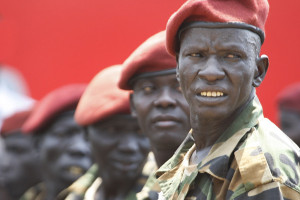By: Novpreet Bajwa
In the latest development of South Sudanese civil war, 89 children have been abducted from Malakal village, many of whom were no older than 13. In the past year, at least 12,000 children were abducted and used by both the government and the rebels to aid them in their battles against each other.
The country’s civil war erupted in December 2013 when President Salva Kiir accused his former Vice President, Riek Machar, of attempting to overthrow him, though Machar denies this. This accusation led to an all-out war between them and has escalated into an ethnic war between the Neurs and Dinkas since Machar is the former and Kiir the latter. The war has spread from the capital of South Sudan, Juba, to the Upper Nile regions. In conflict areas, 1.8 million people have been displaced from their homes, afraid to return home to the volatile conflict, while the other 3.1 million people residing in South Sudan continue endure the harsh and violent effects of the war. This war has made it difficult for the people in South Sudan to receive adequate and basic needs such as food, shelter, and medical supplies.
Many attempts have been made to negotiate a peace deal between the warring parties by other countries and the United Nations but both parties have violated any conditions reached by the negotiations. The latest plea for peace has been made by the East African Inter-Governmental Authority on Development (IGAD), a coalition composed of several countries that includes Uganda and Kenya. The proposal mandated that the warring parties find a way to set up a transitional and peaceful government in which President Kiir resumes his duties and has two vice presidents that will have equal power. Both President Kiir and Machar have agreed to this negotiation and signed the deal on February 2, 2015. But since the kidnapping of the children occurred after this event, it is safe to assume that even this negotiation will not last. The United Nations became involved in late January 2015. The secretary-general, Ban Ki-moon, met with both men and urged them to end the war with setting up a transitional government. This request was validated with a peace agreement which both men signed but again this agreement proved ineffective since both have violated it.
As of now, it is unlikely that both parties will reach a fair and peaceful agreement. Both men accuse one another of violating any peace agreement they sign and causing havoc in the country. Their main concern seems to be acquiring power over one another rather than providing their people the basic needs for survival.

